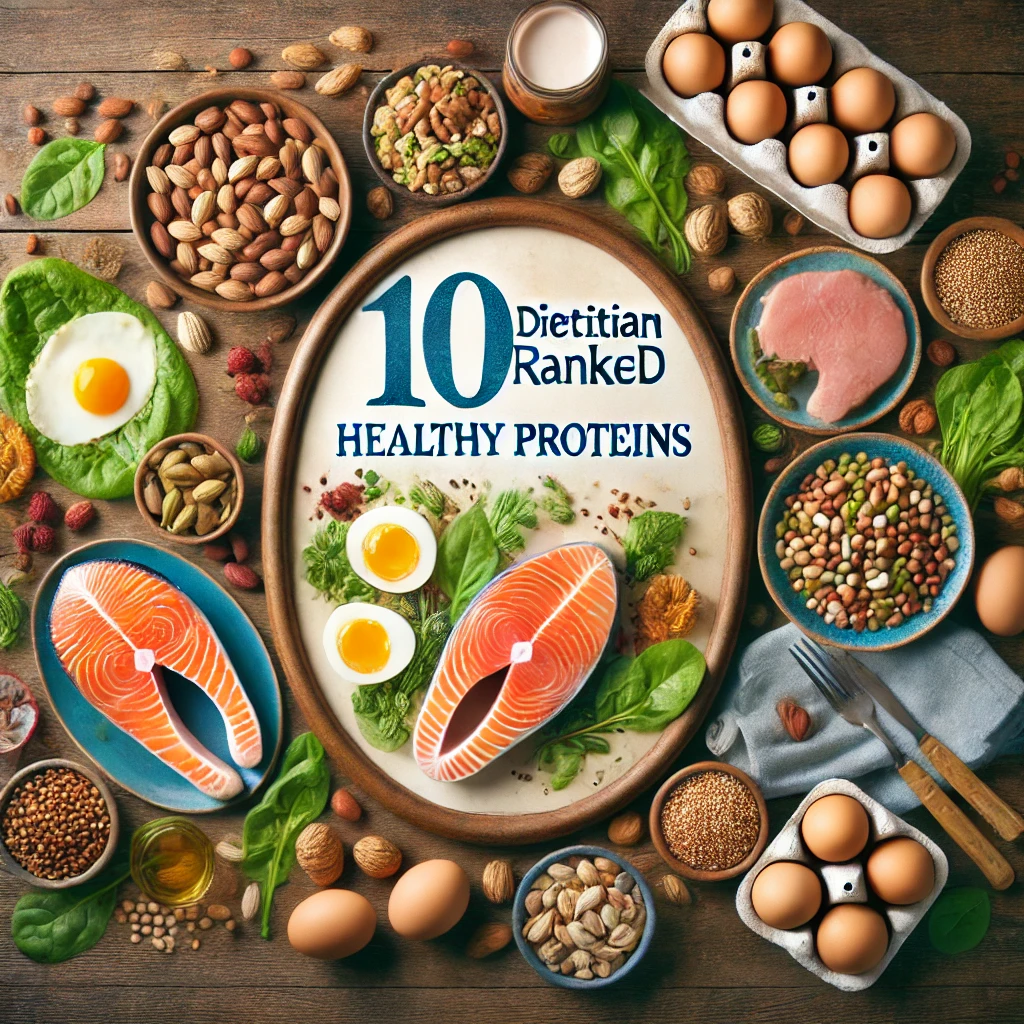10 Dietitian-Ranked Healthy Proteins for Optimal Health and Wellness
Published September 25, 2024
Reading Time: 9 Minutes
When it comes to nutrition, protein stands out as a powerful macronutrient. Unlike fats and carbohydrates, which have had mixed reputations, protein continues to shine as a key component of a balanced diet. However, not all proteins are created equal. Discover the top ten healthy proteins as ranked by a registered dietitian to optimize your health, boost energy, and support muscle repair.
Why Quality Protein Matters
Protein plays a vital role in building and repairing tissues, producing enzymes, and regulating hormones. However, choosing high-quality protein sources is essential for maximizing its benefits. Quality proteins have high bioavailability, meaning your body absorbs and utilizes them efficiently. They also contain additional nutrients like fiber, healthy fats, vitamins, minerals, and antioxidants. Incorporating a variety of plant and animal-based proteins ensures a balanced and nutritious diet.
Here are ten top dietitian-ranked protein sources to incorporate into your meals:
1. Eggs
Eggs are nutritional powerhouses with about 7 grams of high-quality protein per egg. They boast the highest biological value among protein sources, meaning they are metabolized efficiently by the body. Eggs are also rich in carotenoids, choline (for heart health and metabolism), and iron (for oxygen transport). Budget-friendly and versatile, eggs can be enjoyed as omelets, hard-boiled snacks, or atop avocado toast.
2. Salmon
Salmon is a nutrient-dense protein rich in omega-3 fatty acids that support brain health and reduce inflammation. Three ounces of salmon provide approximately 17 grams of protein. Opt for wild salmon when possible for higher mineral content, including potassium, zinc, and iron. Enjoy salmon baked, in salads, stuffed into avocados, or as sushi. Canned salmon is also a budget-friendly option; just watch sodium levels.
3. Greek Yogurt
Greek yogurt offers twice the protein content of regular yogurt (20 grams per cup vs. 10 grams), making it a great option for increasing protein intake. It’s also easier to digest due to lower lactose levels and contains the branched-chain amino acid leucine, which promotes muscle recovery. Enjoy Greek yogurt with fruit, smoothies, baked goods, and as a healthy substitute for sour cream.
4. Chicken
A 4-ounce chicken breast contains about 35 grams of complete protein. Both dark and white meat provide important nutrients, with dark meat offering more iron and zinc, and white meat delivering B vitamins. Chicken is low in saturated fat and perfect for weeknight sheet-pan dinners, soups, stir-fries, or pasta dishes.
5. Tofu
Tofu is a plant-based complete protein, offering all nine essential amino acids. With about 20 grams of protein per cup, tofu is also rich in calcium and iron. Research indicates consuming 25 grams of soy protein daily may lower LDL cholesterol by around 5%. Use tofu in stir-fries, air-fryer bowls, or sheet-pan meals with flavorful marinades.
6. Cottage Cheese
With 25 grams of protein per cup, cottage cheese is a protein-rich dairy alternative to yogurt. It contains easily absorbed whey protein and is lower in sugar. Enjoy cottage cheese with fruit, in soufflés, or as a ricotta substitute for lasagna.
7. Grass-Fed Beef
Quality grass-fed beef contains about 20 grams of protein per three ounces, along with high levels of iron, omega-3 fatty acids, and vitamins A and E. While limiting red meat is often recommended for better heart health, occasional consumption of nutrient-dense grass-fed beef can be beneficial. Use it in stuffed peppers, meatloaves, chili, or meatballs.
8. Lentils
Lentils offer nearly 20 grams of protein per cup and are rich in plant-based iron, zinc, B vitamins, and fiber. Since they are not complete proteins, pair them with rice or other grains to ensure a balanced amino acid profile. Lentils work well in soups, burgers, pasta, and stews.
9. Chickpeas
Chickpeas provide 15 grams of protein per cooked cup, along with 12 grams of fiber, iron, magnesium, and folate. While not a complete protein, combining chickpeas with whole grains can complete their amino acid profile. Roast them for a crunchy snack, puree into hummus, or add to curries and wraps.
10. Almonds
Almonds offer 6 grams of protein per ounce and are rich in healthy fats, fiber, vitamin E, potassium, and magnesium. Though they may have lower bioavailability than other proteins, they make a nutrient-dense addition to meals and snacks. Enjoy almonds in oatmeal, salads, or as almond butter.
Bottom Line
Incorporating high-quality proteins into your diet is essential for building muscle, regulating hormones, and enhancing overall health. Aim for a balanced mix of plant and animal-based proteins to maximize their nutritional benefits.
For more nutrition tips, recipes, and expert advice, visit slyacademy.com.







